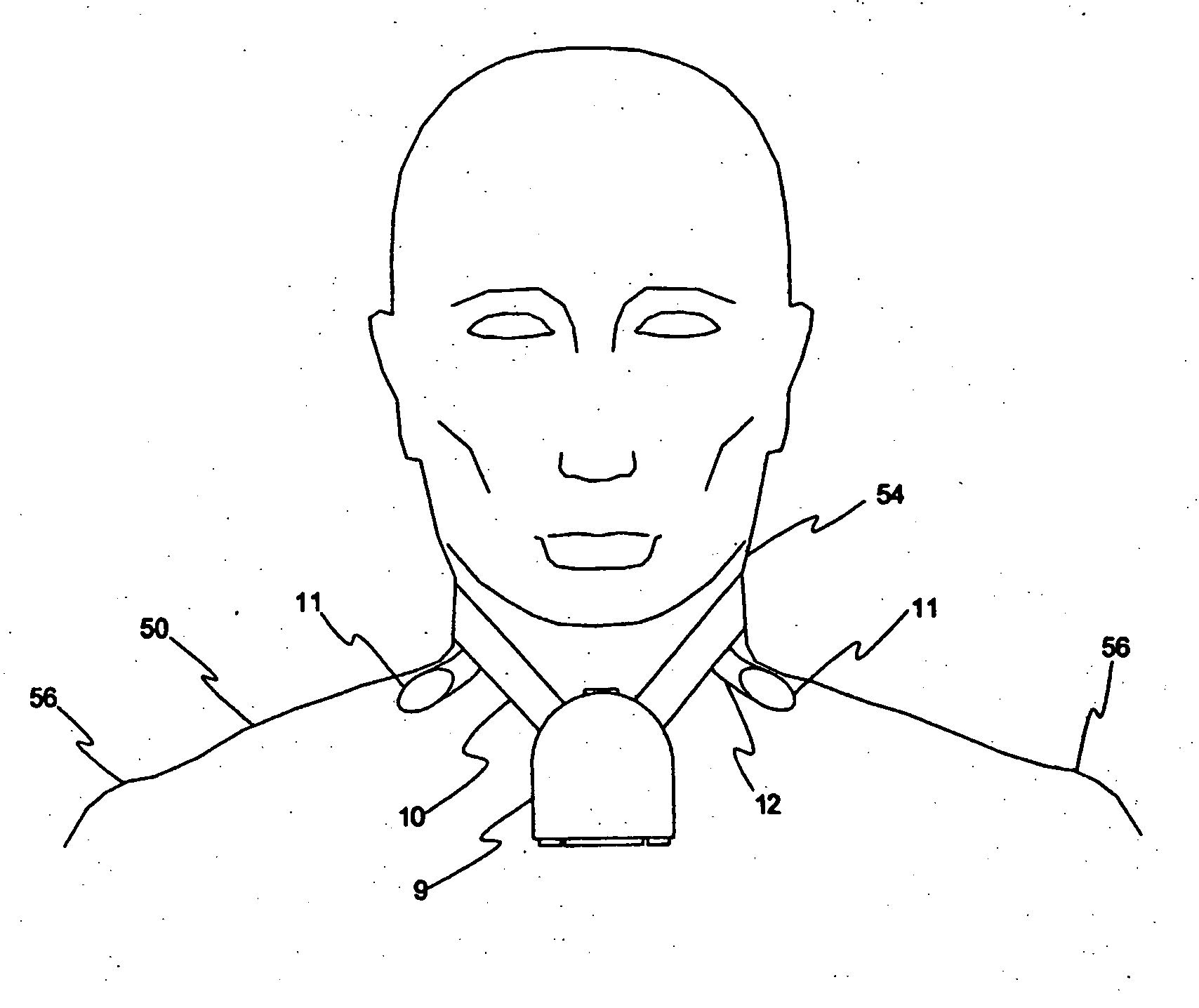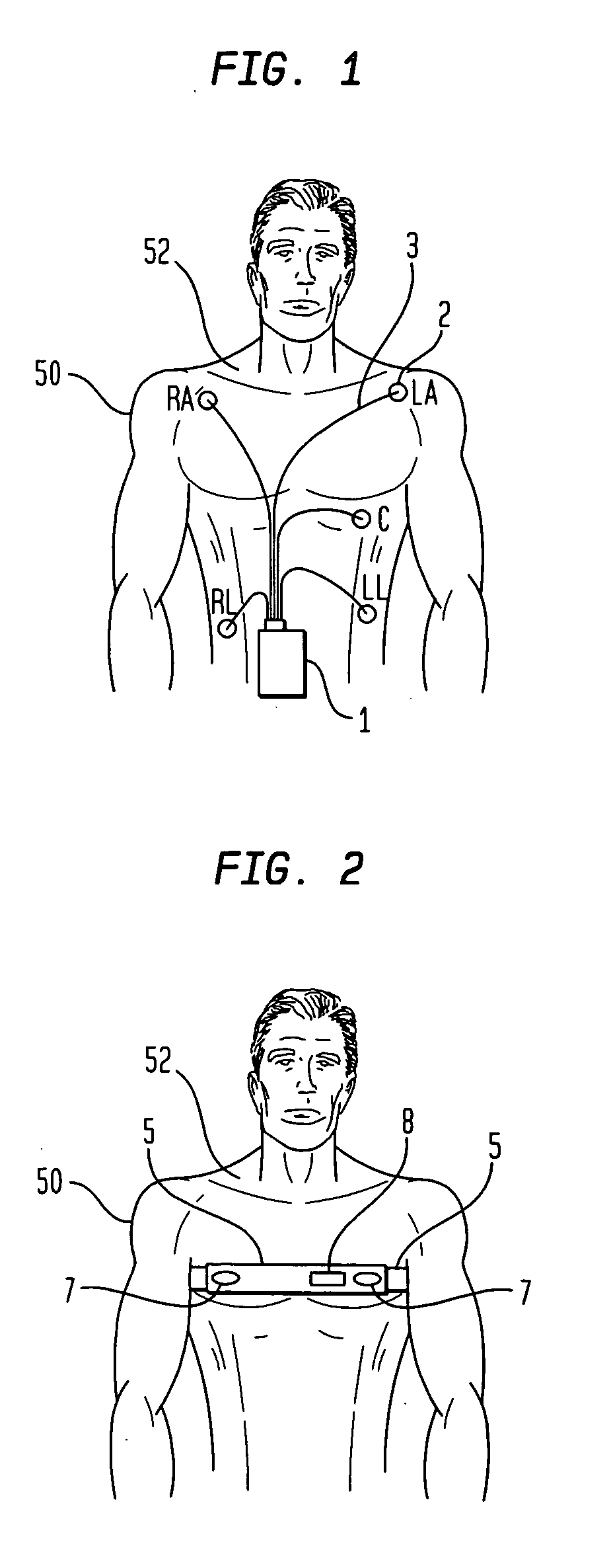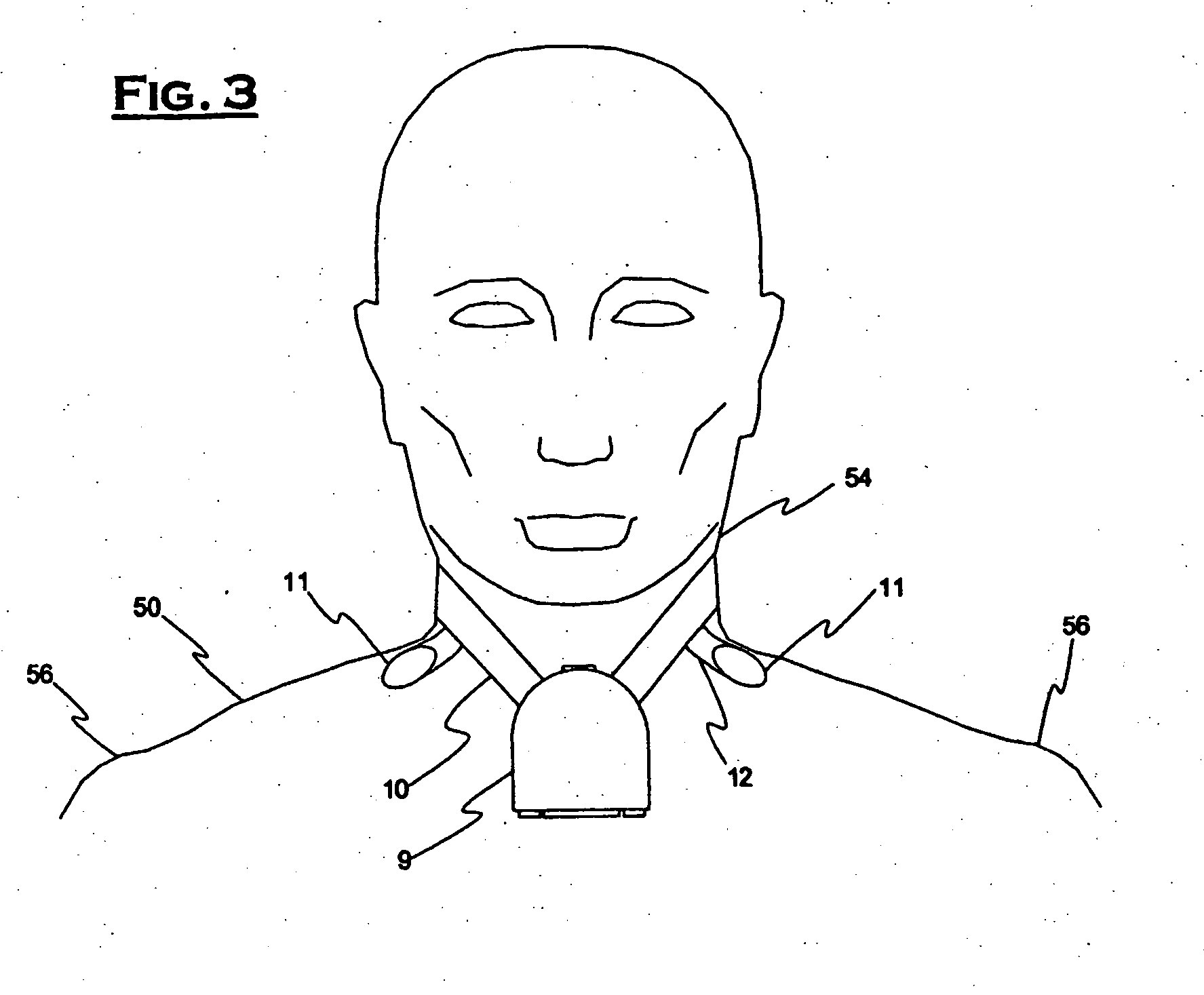Patient-worn medical monitoring device
a monitoring device and patient technology, applied in the field of medical monitoring devices, can solve the problems of not being able to allow normal patient ambulation, requiring special attention to move along with the patient, and devices remain too heavy and bulky, and achieve the effect of low applied cos
- Summary
- Abstract
- Description
- Claims
- Application Information
AI Technical Summary
Benefits of technology
Problems solved by technology
Method used
Image
Examples
Embodiment Construction
[0034]FIG. 1 illustrates a commonly used prior art clinical ambulatory ECG monitor connected to a chest 52 of a patient 50. Several leadwires 3 extend from a housing 1 to a plurality of electrodes 2 attached to chest 52. Electrodes 2 are labeled RA, LA, RL, C and LL. Housing 1 contains monitoring electronics and is generally supported by a sling (not shown in the figure) or arranged to be clipped to the patient's belt or the waistband of the patient's clothing. This support arrangement is objectionable due to the bulk and weight of the electronics and housing 1 and due to the often encountered difficulty of housing 1 falling loose from its support or attachment.
[0035] A rather aggressive adhesive is generally necessary to attach electrodes 2 because they must not only remain securely in contact with chest 52, but must also support the weight and possible tension of leadwires 3. The use of a strong adhesive results in considerable discomfort during removal of electrodes 2 and, in so...
PUM
 Login to View More
Login to View More Abstract
Description
Claims
Application Information
 Login to View More
Login to View More - R&D
- Intellectual Property
- Life Sciences
- Materials
- Tech Scout
- Unparalleled Data Quality
- Higher Quality Content
- 60% Fewer Hallucinations
Browse by: Latest US Patents, China's latest patents, Technical Efficacy Thesaurus, Application Domain, Technology Topic, Popular Technical Reports.
© 2025 PatSnap. All rights reserved.Legal|Privacy policy|Modern Slavery Act Transparency Statement|Sitemap|About US| Contact US: help@patsnap.com



